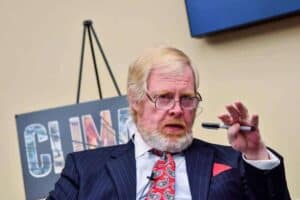It's an incredible honour to be awarded an Order of the British Empire (OBE) by Queen Elizabeth II of England, and even more so for a South African. But if anyone is worthy of such a title, it is undeniably Johnny Clegg.

Though the man has never met the queen, Buckingham Palace added him to the British monarch’s honours list on June 13.
It was completely unexpected. Clegg describes being called up by the British High Commissioner in South Africa.
“It was like a bolt out of the blue,” he says.
“I thought it was a prank. I asked a lot of questions, protocol you know. She was very informative. I asked ‘is this for real’ and she said ‘yes it’s for real.’ So I said ‘that’s fantastic, thank you so much’.”
In an industry where musicians come and go in the blink of an eye, the singer-songwriter has established himself as a fan favourite for more than 30 years. An important figure in South African history, Clegg was one of the first music artists to mix traditional African rhythms with Western music styles.
Looking back, he recalls the rejection he received, revealing how a select few believed he was “bastardising Western music” – this played a large role in shaping the person he is today.
Fighting for what he believed in, Clegg not only started a revolution in terms of music genre, but continues to promote justice and democracy among our people to this day.
“This particular award is like a long service award,” he explains. “It’s been awarded for 30 years of service towards culture, democracy and helping the vulnerable people in our society. That’s a particularly nice part of the award for me. It means they did their homework. They’ve seen me pop in and out of England and have obviously been watching my progress in South Africa.”
A highly private person, the singer has managed to keep his personal life out of the media, allowing his philanthropic efforts to cultivate a life of its own, and undertaking more than his fans may know about.
“For most celebrities who are involved in charity, it becomes part of their persona,” he says.
“They use it to build their media profile, deciding which organisation is the best fit for their brand. It’s nice not having to think about every little thing and how it’s going to look to the public.”
One such venture is his collaboration with the Treatment Action Campaign. Learning that TB is the leading cause of death in South Africa, Clegg not only made a large monetary donation to the organisation but continues to host fundraising events on their behalf.
He also has relations with the Starfish Foundation in South Africa and World Vision in Canada, showing support against child labour and human trafficking.
“I like to team up with groups who have their finger on the pulse and do this professionally on a 24-hour basis – which I can’t do. They have access to a lot of information and have active programmes which are being rolled out in different countries.
“I’m carrying a message. In these shows, I have an interval and in that interval I talk. And that’s the best I can do because I’m a communicator.”
So what began his journey into this world of music and activism?
“I was 14 years old when I met a Zulu street musician,” he explains.
“I saw how his guitar was tuned differently and was fascinated by it. For many years, I was a puritan, playing traditional street music. It was only years later that I started experimenting with folk music and mixing the two.”
Though there is no one defining moment in his three-decade long career, Clegg attributes his patronage to the people and events that helped shape him as an artist and individual.
Support Local Journalism
Add The Citizen as a Preferred Source on Google and follow us on Google News to see more of our trusted reporting in Google News and Top Stories.








